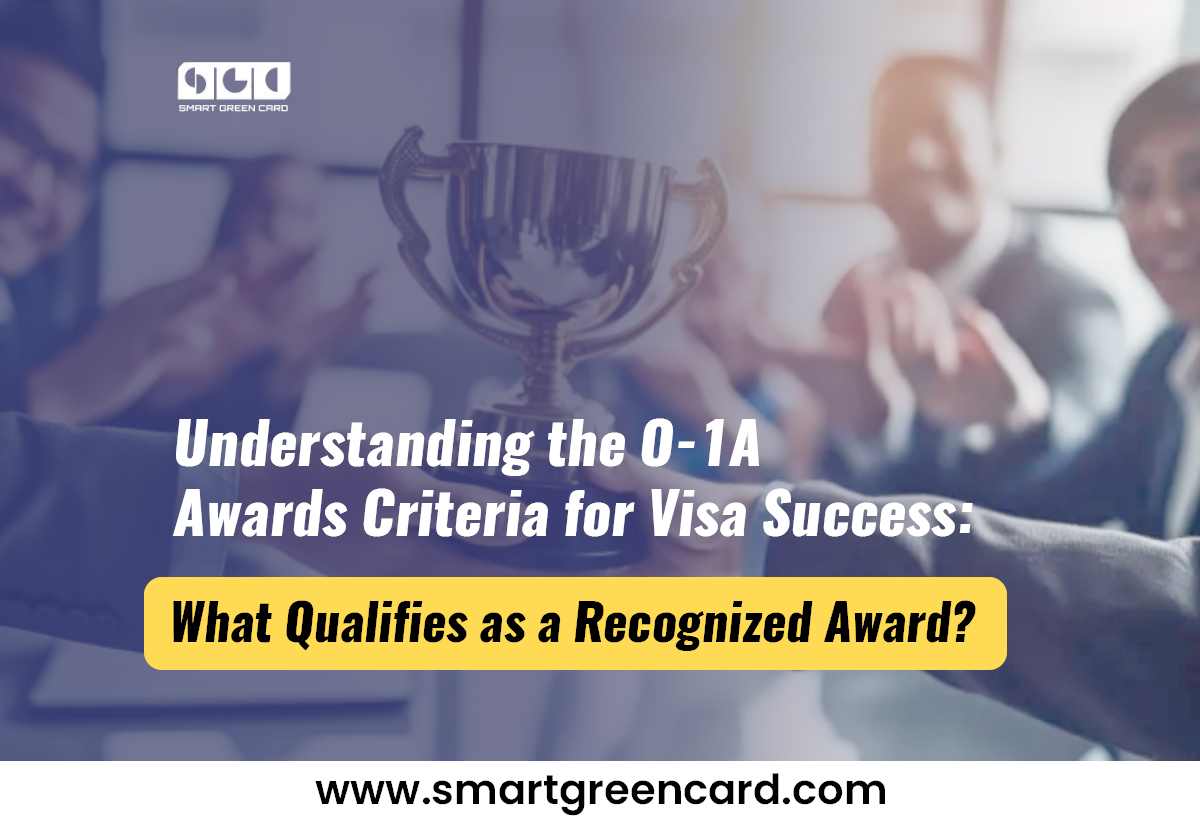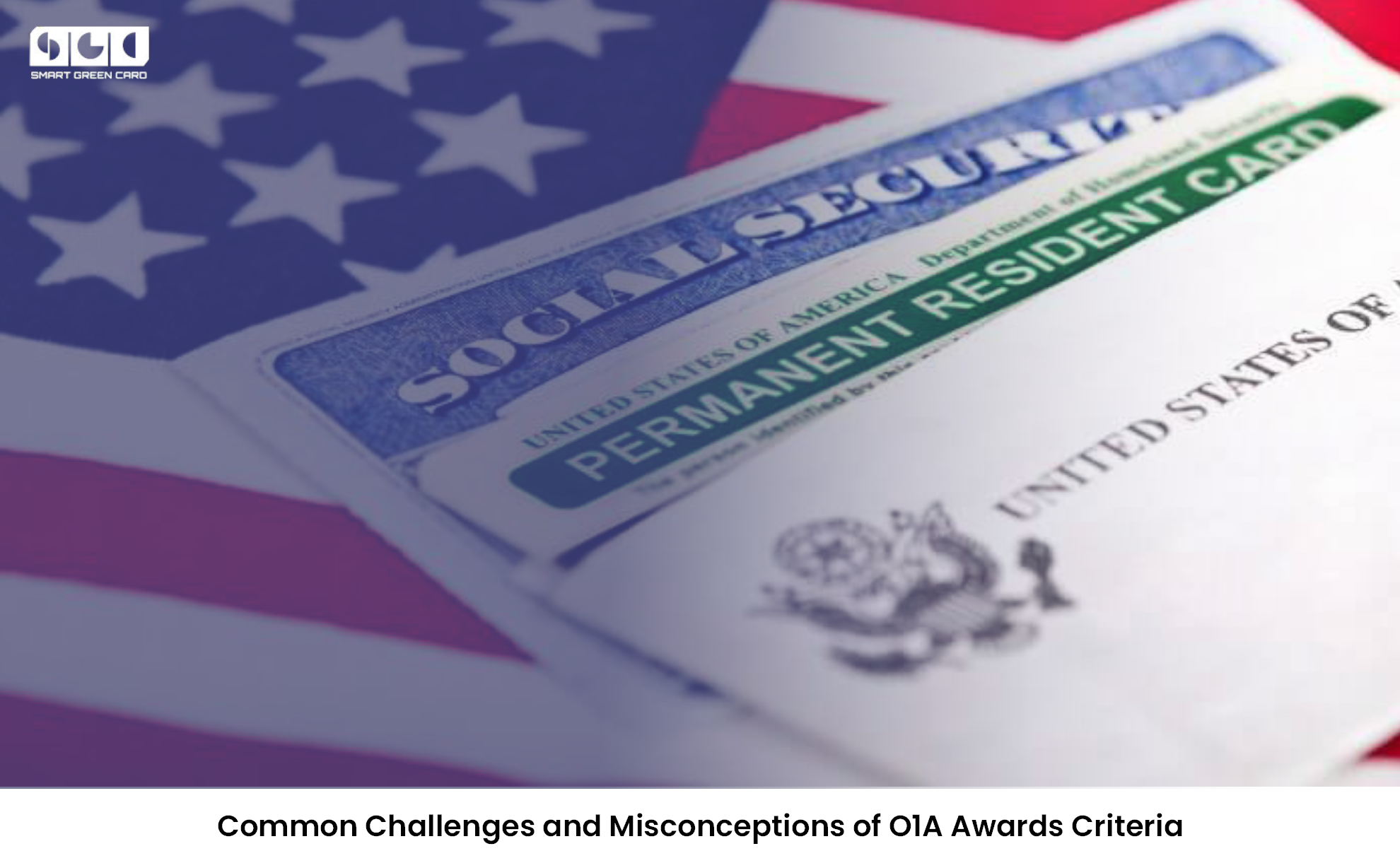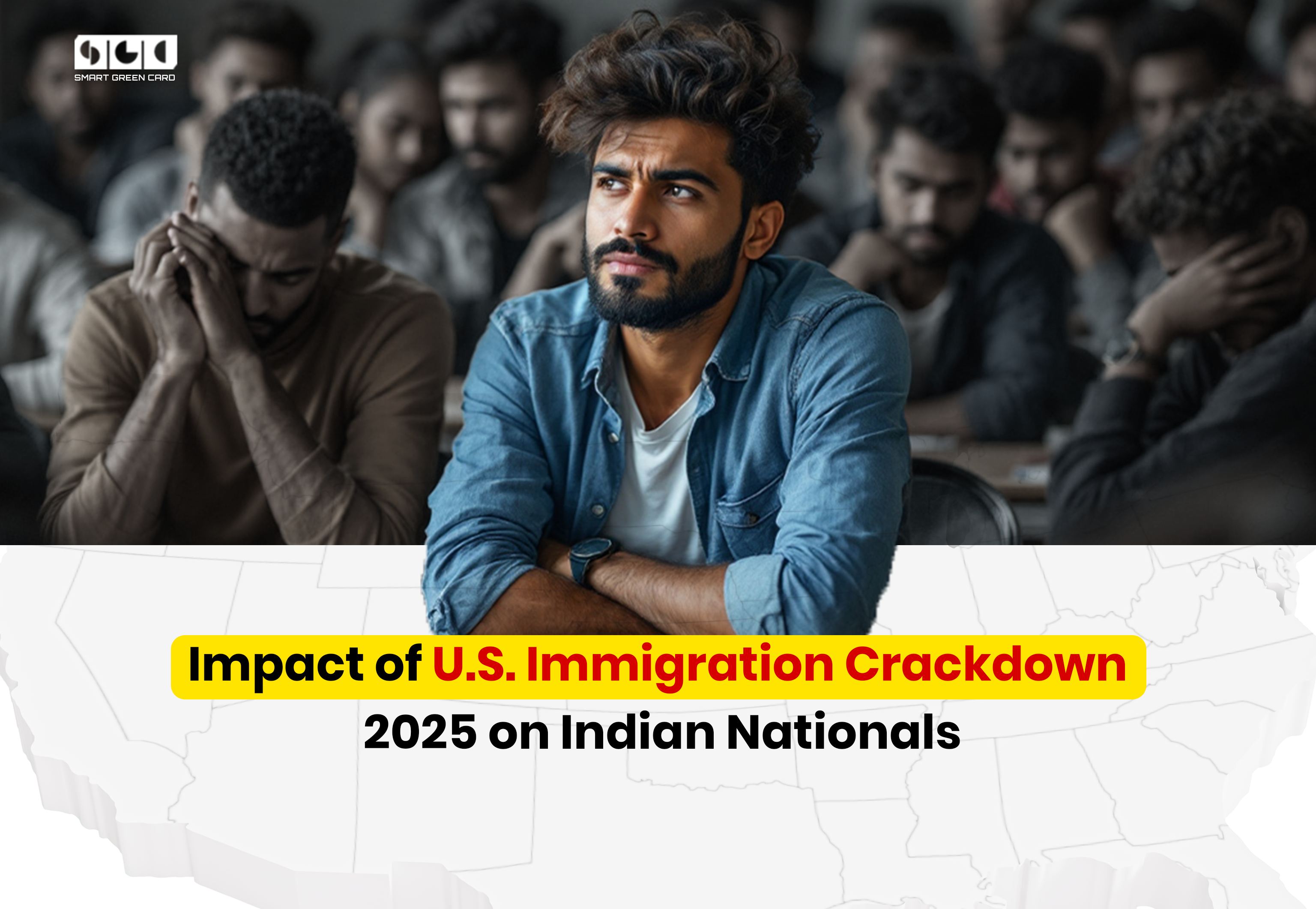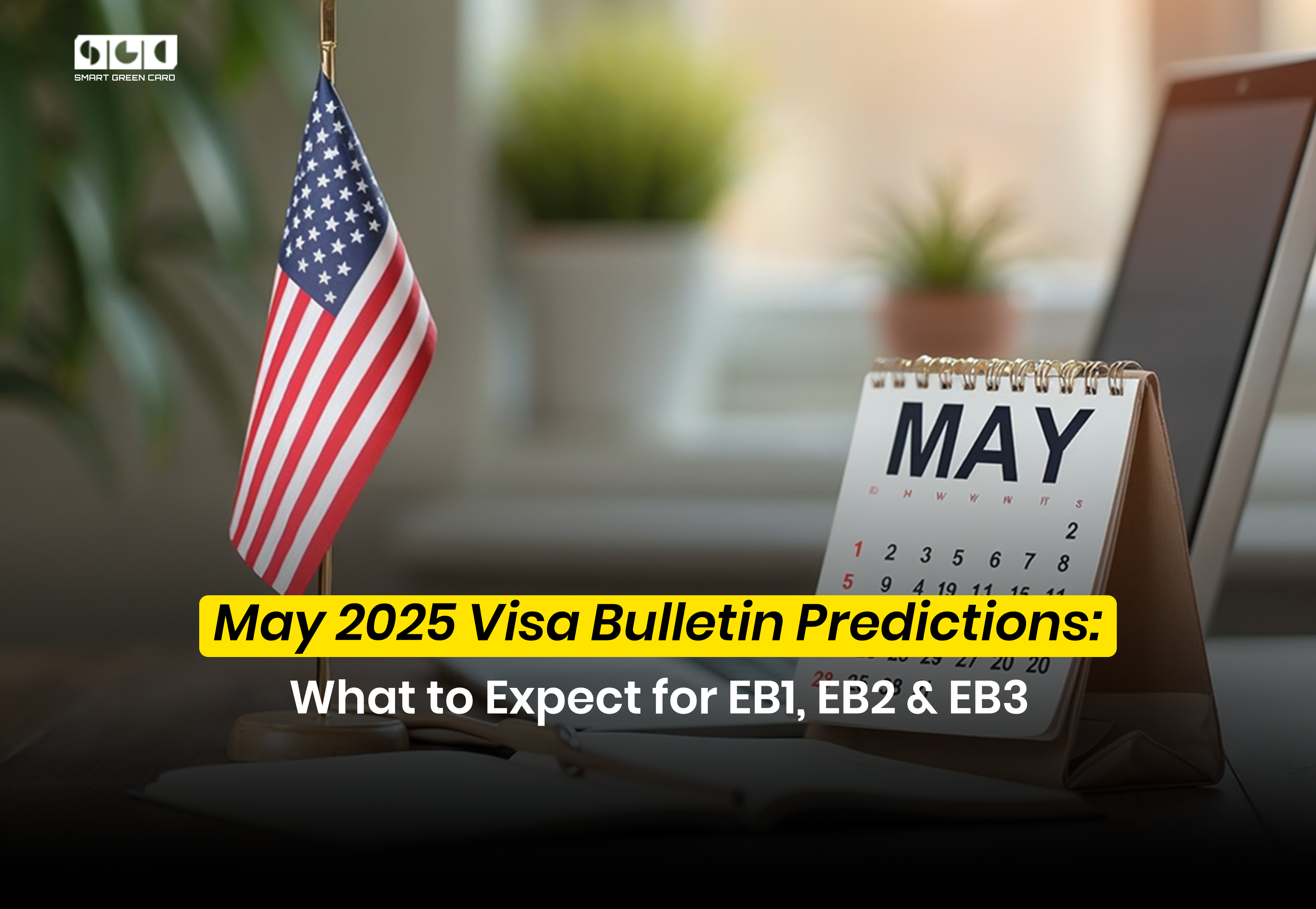Understanding the O-1A Awards Criteria for Visa Success: What Qualifies as a Recognized Award?

The O-1A visa is designed for individuals with extraordinary abilities in science, education, business, or athletics. To qualify for the visa, applicants must meet three criteria demonstrating their exceptional achievements. One of the O1A criteria is the documentation of nationally or internationally recognized prizes or awards for excellence in their field, commonly called the O-1A awards criterion.
What Qualifies as a Recognized Award?

To meet the criterion, the award must be significant within the beneficiary’s field. However, not all prizes or recognitions qualify. The award demonstrates excellence and is recognized by the broader professional community. Some of the examples of acceptable awards include:
- Prizes from nationally or internationally recognized institutions or associations. This could be prestigious awards granted by well-known organizations that operate across regions or even globally.
- Awards for academic or research excellence, such as PhD dissertation awards or competitive research fellowships recognized nationally or internationally.
- Honors from professional associations. For example, an award from a major conference or organization with global reach in a specific industry.
Key Factors to Consider for Evaluating O1A Awards Criteria
Not all awards carry the necessary weight to meet the O-1A criteria. USCIS evaluates the following factors to determine if the award qualifies:
1.Recognition Level: The awards must be nationally or internationally recognized. Local or regional awards, regardless of their prestige, do not qualify.
2. Field-Specific Excellence: The awards must specifically recognize your excellence in your field of expertise.
3. Criteria for receiving the award: Awards that are granted based on competitive selection processes, judged by recognized experts, carry more weight. An award must be more than a token recognition; it should indicate extraordinary ability or significant contributions to the field.
For instance, receiving a “Best Paper” award at an internationally recognized conference in your field, where selection is based on peer review, would likely satisfy the O-1A awards criteria. In contrast, an employee-of-the-month award at a local company or school may not.
Documentation Requirements for O1A Awards Criteria
Meeting the awards criterion requires more than just listing prizes. Proper documentation must be provided, which typically includes:
- Award certificates or official letters from the awarding body.
- Evidence of the award’s significance in the field includes media coverage or other forms of public recognition
- Details on the selection process and criteria used for granting the award.
Providing thorough and well-organized documentation is crucial for USCIS officers to assess the award’s significance.
Common Challenges and Misconceptions of O1A Awards Criteria

Many applicants mistakenly believe that any award will suffice for the O-1A visa. However, USCIS is strict about the level of recognition required. Awards limited to a small pool of competitors, such as those specific to a single employer or locality, generally do not meet the threshold unless recognized nationally or internationally.
For example, awards granted only to employees within a company are unlikely to qualify unless the company itself is an international industry leader and the award is acknowledged industry-wide.
Additionally, while valuable, some awards based purely on academic performance may not always meet this criterion unless they have substantial national or international recognition.
Conclusion
The O-1A awards criteria is one of the ways of demonstrating extraordinary ability. Applicants must show their nationally or internationally recognized excellence awards. Careful attention to the detailed documentation is essential for successfully meeting the requirement.
Are you an international student seeking guidance to navigate F-1 visa challenges or aiming for talent-based visas like the O1A or EB1A? Explore the Smart Green Card Student Plan, designed to provide expert support in understanding your visa options and effectively preparing for O-1A and EB1A visa applications.
Your Green Card journey starts here! Visit Smart Green Card to discover how you can qualify and apply with confidence.
Share this :
- SGC
- No Comments
Latest blog & Newsletters
Not Selected for H1B Lottery 2025? Here’s What You Can Do Next
Not Selected for H1B Lottery 2025? Here’s What You Can Do Next The...
Impact of U.S. Immigration Crackdown 2025 on Indian Nationals
Impact of U.S. Immigration Crackdown 2025 on Indian Nationals The U.S. immigration crackdown...
May 2025 Visa Bulletin Predictions: What to Expect for EB1, EB2 & EB3
May 2025 Visa Bulletin Predictions: What to Expect for EB1, EB2 & EB3...





